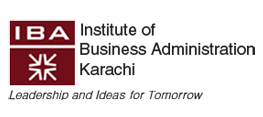Impact of Alpha adjusted capital adequacy ratio (CAR) on the financial performance of Islamic banks in Pakistan
Submission Type
Paper Presentation
Abstract/Description
Purpose: The purpose of this study is to determine the impact of alpha adjusted capital adequacy ratio (CAR) on the performance of full-fledge Islamic Banks in Pakistan. Currently, for the regulatory compliance, overall banking industry has adopted Basel-III framework for calculation of capital adequacy ratio (CAR) which been designed for the banking system in general and not for the Islamic banks specifically. The Islamic Financial Services Board (IFSB) has designed and specific method for the calculation of Islamic banks’ CAR which is named as alpha adjusted capital adequacy ratio. The nature of Quasi-equity of profit-sharing investment account holders (PSIA) of Islamic banks was addressed and adjusted and named as alpha.
Research Methodology: This is a quantitative study based on panel data analysis. Five full-fledged Islamic Banks in Pakistan have been selected for this study. Quarterly data of ten years (2011 – 2020) has been collected using Eikon Data-stream and published financial statements of the five full - fledged Islamic banks in Pakistan.
Research findings: This study found a significant and positive relationship of alpha adjusted CAR with the financial performance of Islamic banks in Pakistan. The findings of this study also revealed that the adjusted CAR calculated under IFSB-15 was higher as compared to the unadjusted CAR determined under the formula of Basel-III.
Research Implications: The findings of this study suggest the banking regulators and policymakers to consider the importance of alpha while designing risk management strategies and mechanisms for Islamic Banks.
Keywords
Alpha, PSIA, Capital Adequacy Ratio (CAR), Basel-III, IFSB-15
Session Chair
Dr. Mohamed Eskandar Shah Mohd. Rasid, Associate Professor, Hamad Bin Khalifa University (HBKU)
Session Host
Dr. Rizwan Malik, Head, Standards Implementation & Strategic Developments AAOIFI, Bahrain
Start Date
31-5-2022 3:30 PM
End Date
31-5-2022 3:45 PM
Recommended Citation
Ullah, R., Ali, A., & Saba, I. (2022). Impact of Alpha adjusted capital adequacy ratio (CAR) on the financial performance of Islamic banks in Pakistan. IBA CEIF World Islamic Finance Forum (WIFF). Retrieved from https://ir.iba.edu.pk/wiff/2022/agenda/8
COinS
Impact of Alpha adjusted capital adequacy ratio (CAR) on the financial performance of Islamic banks in Pakistan
Purpose: The purpose of this study is to determine the impact of alpha adjusted capital adequacy ratio (CAR) on the performance of full-fledge Islamic Banks in Pakistan. Currently, for the regulatory compliance, overall banking industry has adopted Basel-III framework for calculation of capital adequacy ratio (CAR) which been designed for the banking system in general and not for the Islamic banks specifically. The Islamic Financial Services Board (IFSB) has designed and specific method for the calculation of Islamic banks’ CAR which is named as alpha adjusted capital adequacy ratio. The nature of Quasi-equity of profit-sharing investment account holders (PSIA) of Islamic banks was addressed and adjusted and named as alpha.
Research Methodology: This is a quantitative study based on panel data analysis. Five full-fledged Islamic Banks in Pakistan have been selected for this study. Quarterly data of ten years (2011 – 2020) has been collected using Eikon Data-stream and published financial statements of the five full - fledged Islamic banks in Pakistan.
Research findings: This study found a significant and positive relationship of alpha adjusted CAR with the financial performance of Islamic banks in Pakistan. The findings of this study also revealed that the adjusted CAR calculated under IFSB-15 was higher as compared to the unadjusted CAR determined under the formula of Basel-III.
Research Implications: The findings of this study suggest the banking regulators and policymakers to consider the importance of alpha while designing risk management strategies and mechanisms for Islamic Banks.



